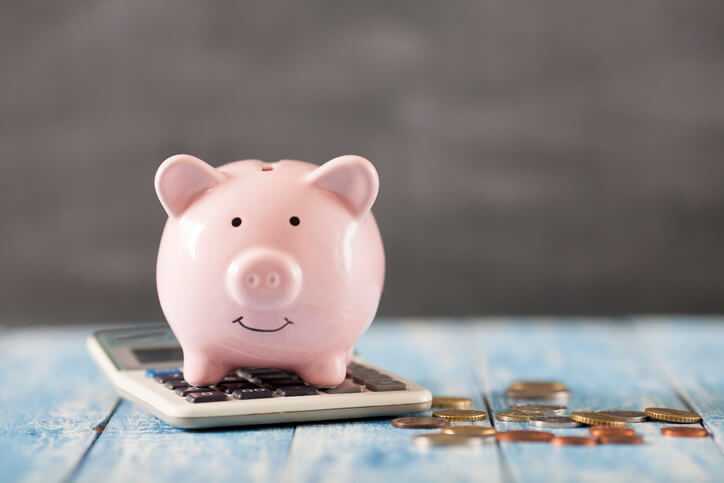How to Prepare for a Recession
Recessions are an unfortunate reality—it’s not a question of if another one will come, but when. On top of that, no one can really say for sure when the next recession will happen or how long it will last. But here is the good news: there are a few steps you can take now to help prepare for an economic downturn.
The two biggest steps you can take to prepare for a recession are building up your emergency savings and lowering your monthly expenses. In this article we’ll cover how to tackle those two steps, plus we’ll go through a few bonus tips that can help you stay the course in uncertain economic times.

Build Up Your Emergency Savings
The ugly truth about recessions is that job loss becomes more likely for almost all of us. Even if your income remains safe, it is often harder to secure new credit during the downturn, so it’s important to have a backup plan to help with unexpected expenses or a drop in income.
The number one step to take to prepare yourself for a recession is to build up your emergency savings fund. Everyone’s situation is different, but conventional wisdom is that you should have at least six months’ of living expenses in savings. That means enough money in your savings account to cover your rent/housing costs, utilities, basic necessities like food, and other important financial obligations like your debt payments (auto loan, mortgage, etc.). If 6 months isn’t realistic for you right now, start with a more attainable goal and then build from there.
How to do it
Take stock of your finances so you know what you’re shooting for – tally up your monthly expenses, including housing, utilities, essentials like food, and your monthly debt payments. Don’t forget to consider new expenses you might have if you lose your job (for example, health insurance and medical costs). Multiply that number by 6 and you have your emergency savings goals.
If you have nowhere near six months’ of expenses saved up, don’t worry about it. The most important step is to start saving—it can begin with just a few dollars a week and grow from there. Many people find that technology is their friend when it comes to savings. Consider setting up an automatic transfer from your checking account to a savings account as soon as your paycheck comes in. This will help jumpstart your savings and, by putting your savings in a separate account, you reduce the temptation to spend it on something unnecessary.
A savings account with a high interest rate can help you earn more interest on the money that you set aside, so be sure to shop around for the best account to meet your needs.
Lower Your Monthly Expenses
Reducing your monthly expenses now will give you breathing room in your budget – a crucial step to being able to weather a recession and a potential loss or decrease in your income. Lowering your monthly expenses will also free up more money to set aside in your emergency savings – an added bonus.
How to do it
There are three main ways to lower your monthly expenses in preparation for a recession.
1. Pay off your debt
Most of us take on debt at some point, but too much debt can be unwieldy and high-interest debt can cost you thousands in the long run. Focus on paying off your high-interest debt first. If your credit card balances keep creeping up, consider refinancing your credit cards into a low fixed rate personal loan. If you’re making multiple debt payments each month, a debt consolidation loan may hep you streamline your finances and get out of debt quicker. Not sure which debt to tackle first? Check out some different strategies on how to pay off debt quickly.
2. Keep new debt to a minimum
Debt can be a useful tool to help us achieve our goals – from funding your education to financing that home improvement project. But if you expect a recession is coming, it may not be the best time to take on more obligations. Consider putting off any major purchases until the economy is more stable. Ask yourself whether you really need that new car, only open new accounts if you really need them, and check out these tips on staying out of debt for good.
3. Reduce other monthly expenses
Once you’ve tackled your existing debt, work on lowering your other monthly expenses. The advantages of doing this now are twofold: first, you’ll be able to set aside more money for your emergency savings, and second, you’ll need less in your emergency savings account if you reduce your monthly obligations. It’s a win-win!
To get started, keep track of your spending and put a realistic budget in place. If you’re having trouble hitting your budget goals, try some of these hacks to cut back on spending and check out these tips to avoid overspending on a big project or purchase.
Wondering how to balance the dueling goals of building up your emergency savings AND paying down existing debt? Check out this resource on whether you should pay down debt or save.
Have a Backup For Your Backup
In addition to building up your emergency savings, consider taking some other steps to protect your income if a recession hits.
1. Keep your professional skills sharp and your resume updated
Make sure that you’re investing in your professional skill set in case you need to make a move. This might mean adding a new certification or training in your existing field or taking on a new project that will give you some new experience. This will help you remain invaluable to your existing employer and make you more attractive to potential new employers. Keep your resume up-to-date with all of your latest roles and achievements so you’ll be ready to stand out if you find yourself needing to apply for something new.
2. Start a side hustle to complement your day job
Don’t check out from your full-time job but consider launching that side gig you’ve been dreaming of. From renting out an extra room in your house to selling floral arrangements on the weekend, a side hustle can complement the income from your day job and provide some important income diversification in the face of a recession.
3. Maintain access to affordable backup credit
Taking on more debt should be a last resort, but it may be helpful to have an emergency credit card or credit line available if you really need it. If you’ve made progress paying down your credit card debt—that’s great. Unless you’re paying high fees, consider keeping those old accounts open even if you aren’t using them now. They’ll be helpful in an emergency AND keeping an old card account open can help boost your credit score.
4. Keep your credit in good shape
Many lenders tighten their requirements during a recession, which means it can be harder to qualify for new credit if you need it. In addition to your emergency savings and a backup credit card or credit line, a good credit score can improve your approval odds if you find yourself in need of last-minute credit. Keep an eye on your score with a credit monitoring service. Adopt some common habits of people with good credit , or aim high and work to get an excellent credit score.
Bottom Line
Tightening your belt isn’t fun, but neither is being unprepared. Take some time now to build up your emergency savings, get your debt under control, and reduce your other monthly expenses. The good news is that a recession isn’t forever – so focus on the steps that can help you weather a temporary downturn and remember that there are better times ahead.


